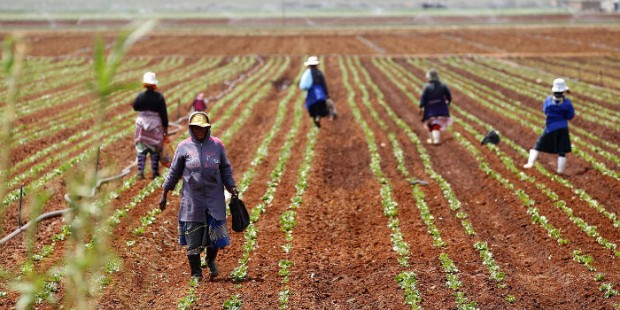DAKAR, Senegal — It was his first post-election news conference, at a luxurious villa high above the Congo River, and the president of the Democratic Republic of Congo was in a combative mood. How dare the reporters question his country’s progress, he argued: just look at our sizzling growth rate — double, even triple, the rates of those pitiful laggards in the West.
On paper, it was certainly true. Many African nations, including Congo, have been expanding rapidly for years, producing some of the fastest-growing economies in the world.
But the reality down below the villa, in crumbling shacks where adults talked of forgoing meals so their children could eat, told a different story. It angered the president, Joseph Kabila, on that steamy December morning in 2011 to be reminded that his misnamed country (neither particularly democratic nor a republic) consistently ranked at or near the very bottom of the United Nations Human Development Index, a comprehensive measure of economic, physical and social well-being across nearly 200 countries.
That disconnect in Kinshasa, Congo’s capital, points up a disquieting reality behind the rosy “Africa Rising” narrative currently beguiling many Western investors, companies and some news media. The continent is indeed posting gains — in 2013, sub-Saharan Africa’s growth rate is projected at 4.9 percent, a figure that would be the envy of any Western government.
But while those numbers represent a notable turnaround from the continental woes of the 1980s and early 1990s, they are virtually meaningless for the growing ranks of Africans living in extreme poverty.
Africa has not reduced poverty rates as much as the rest of the developing world in recent years — particularly China — but it has made some progress, according to a World Bank analysis last month. As the new millennium approached, an estimated 58 percent of people in sub-Saharan Africa were living on less than $1.25 a day, the bank said. By 2010, that majority had been trimmed to a minority — an estimated 48.5 percent.
But because Africa’s population has grown so much in that time — and because inequality remains so pronounced — the total number of people living in such extreme poverty has still increased, to an estimated 413 million in 2010 from 376 million in 1999, the World Bank said. “Growth alone will not suffice to rapidly reduce poverty in the region,” it found.
There is little connection between high growth rates and reductions in inequality. Countries with abundant natural resources — the oil-rich nations of Nigeria and Angola, for example — score even worse in terms of progress on human development indicators than countries without them, and their poverty ratios decline even more slowly. As countries become more dependent on mineral and oil extraction, inequality increases.
Such conclusions would not surprise anybody who has brushed up against the opulence of Nigeria’s fine-robed elite in the international hotels of Abuja, the capital, and then driven into the abysmal conditions of the slums at the capital’s edge. Indeed, a recent paper by two economists at the London School of Economics pointed out that per capita incomes in a large part of Africa are at about the same level as in medieval Europe, arguing that caution about the continent’s recent growth — particularly given the continued fragility of many African institutions — is in order.
The studies suggest that African boosterism, of the sort that organizes gilded conferences under the aegis of the continent’s autocrats, often reflects a very different world from the sprawling slums and destitute villages across the continent.
And they square with a recent survey of the “lived poverty” that Africans endure, which has been making waves in social-science circles on the continent. Statistics provided by African governments are one thing; the actual experience of living in Africa, as revealed by the face-to-face interviews in 34 African countries, is another.
According to the survey, by Afrobarometer, a consortium of social scientists from 30 countries, large percentages of Africans “fail to meet their most basic needs, and many of them fall short on a regular basis.” About half of those surveyed face shortages of food, clean water, medicine and medical care at least once a year, with roughly one in five of them frequently or “always” not getting enough.
The Afrobarometer survey suggests in grim detail that not only has growth failed to make much of a dent in the experience of poverty for many, but that “the various anti-poverty interventions” of African governments of recent years have barely made a difference. Even where institutions function better than the norm, poverty persists and grows: Senegal had the largest increase in “lived poverty” between 2002 and 2012.
Is the fabled African growth rate thus merely a mirage? Afrobarometer leaves the question hanging: its survey suggests that “either economic growth is not trickling down to average citizens and translating into poverty reduction (and in fact, is instead leading to growing income inequality), or that there is reason to question whether reported growth rates are actually being realized.”










